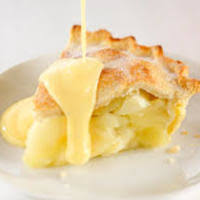- 3-minute read
- 10th March 2016
Word Choice: Desert vs. Dessert
There’s big difference between a ‘frozen dessert’ and a ‘frozen desert’: one is a delicious part of a meal, the other an icy wasteland. You definitely wouldn’t want to confuse the two!
Nevertheless, the similarity in spelling and pronunciation between ‘desert’ and ‘dessert’ means these words are often mixed up, even by native English speakers. It’s therefore worth taking a moment to learn the difference.
Desert (Arid or Abandoned)
The most common use of ‘desert’ is as a noun meaning ‘a region lacking rainfall’, typically somewhere hot and dry with very little vegetation:
Approximately 18% of Australia is covered in desert.
The desert is pretty hard to miss when you live here (picture courtesy of CSIRO).This sense of ‘desert’ can also be used as an adjective describing something related to the desert:
The desert bandicoot is now thought to be extinct.
A slightly different use is as a verb meaning ‘abandon’:
Just when I needed help, he deserted me.
This final use is related to the noun ‘desert’ (a desert is usually deserted, after all), but the two terms are pronounced a little differently.
Dessert (Sweet Stuff)
Also a noun, ‘dessert’ refers to the sweet course usually served at the end of a meal:
Find this useful?
Subscribe to our newsletter and get writing tips from our editors straight to your inbox.
After the main course, Helen had a dessert of fruit pie and custard.

This is the only meaning of ‘dessert’, which at least makes it easier to know when to use it!
‘Just Deserts’
The phrase ‘just deserts’ means ‘that which is deserved’, such as an award or punishment warranted by someone’s behaviour. It comes from an obsolete use of ‘desert’ to mean ‘something merited or deserved’.
The phrase is therefore spelt ‘just deserts’. The only time you’d say ‘just desserts’ is if you really, really felt someone had earned a slice of cake and wanted to express that via a pun.
Desert or Dessert?
As mentioned above, the only definition of ‘dessert’ is a sweet dish served at the end of a meal. It’s therefore easy to avoid confusion as long as you remember what ‘dessert’ means.
It can help to think of the double-‘s’ in ‘dessert’ as standing for ‘sweet stuff’, since this is also a handy description of a dessert! Remember:
Desert (noun) = Arid
Desert (verb) = Abandon
Dessert = Sweet stuff